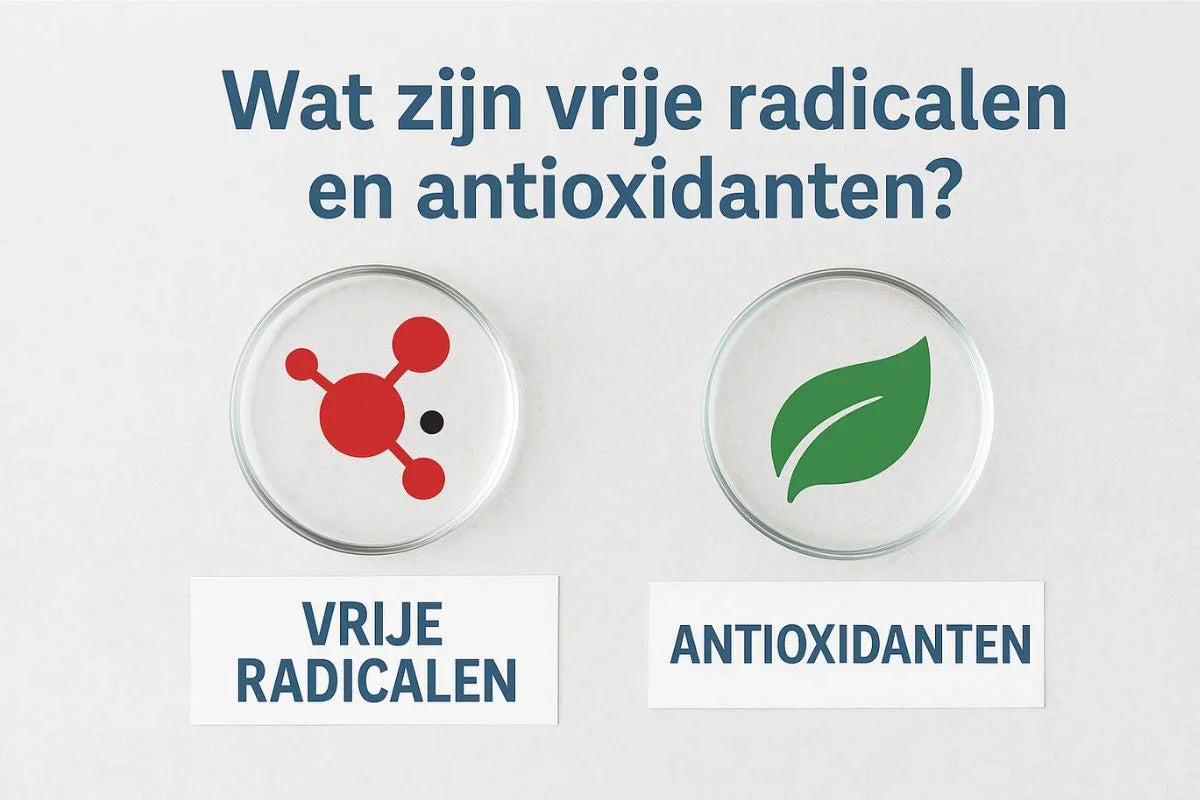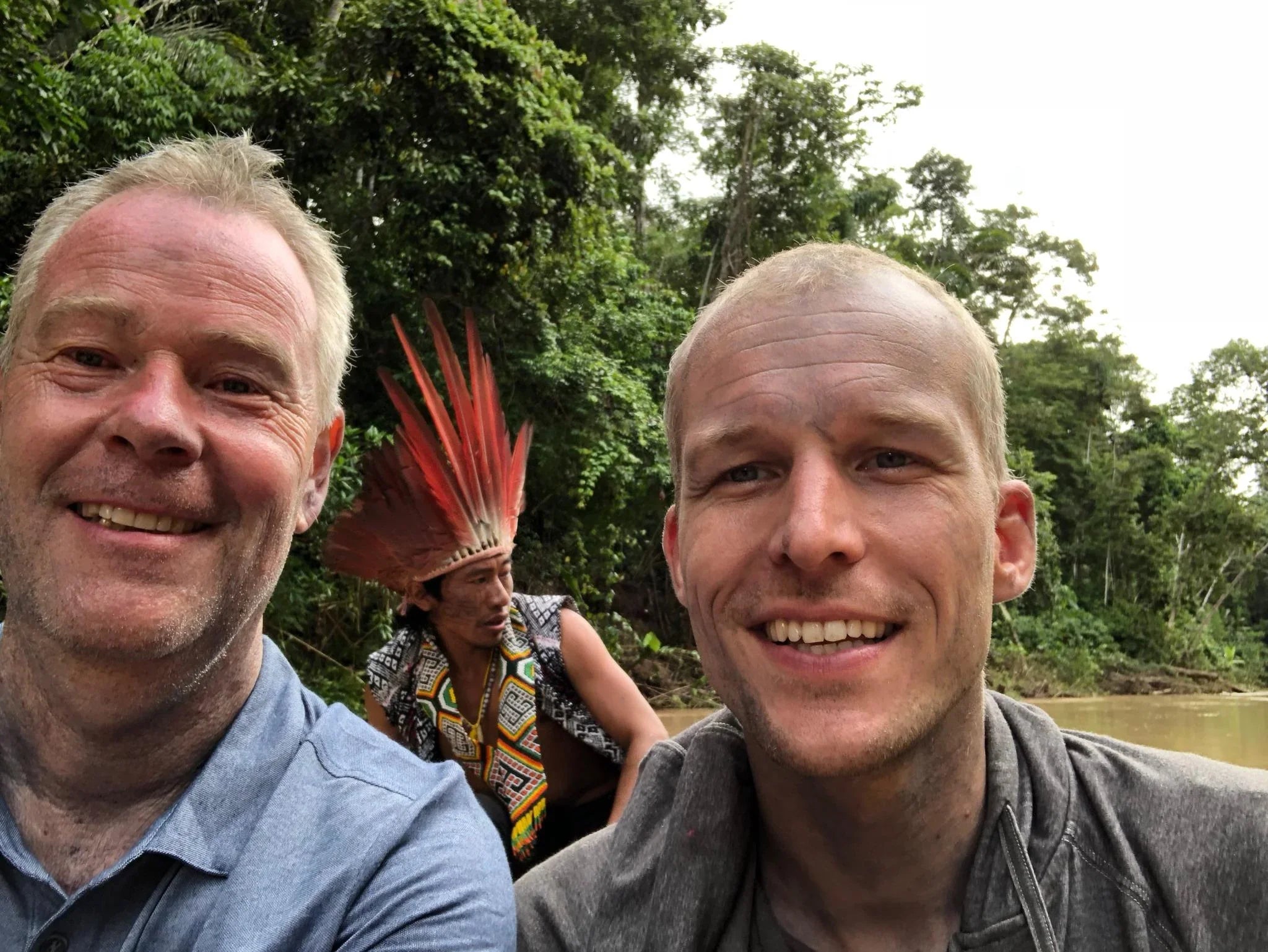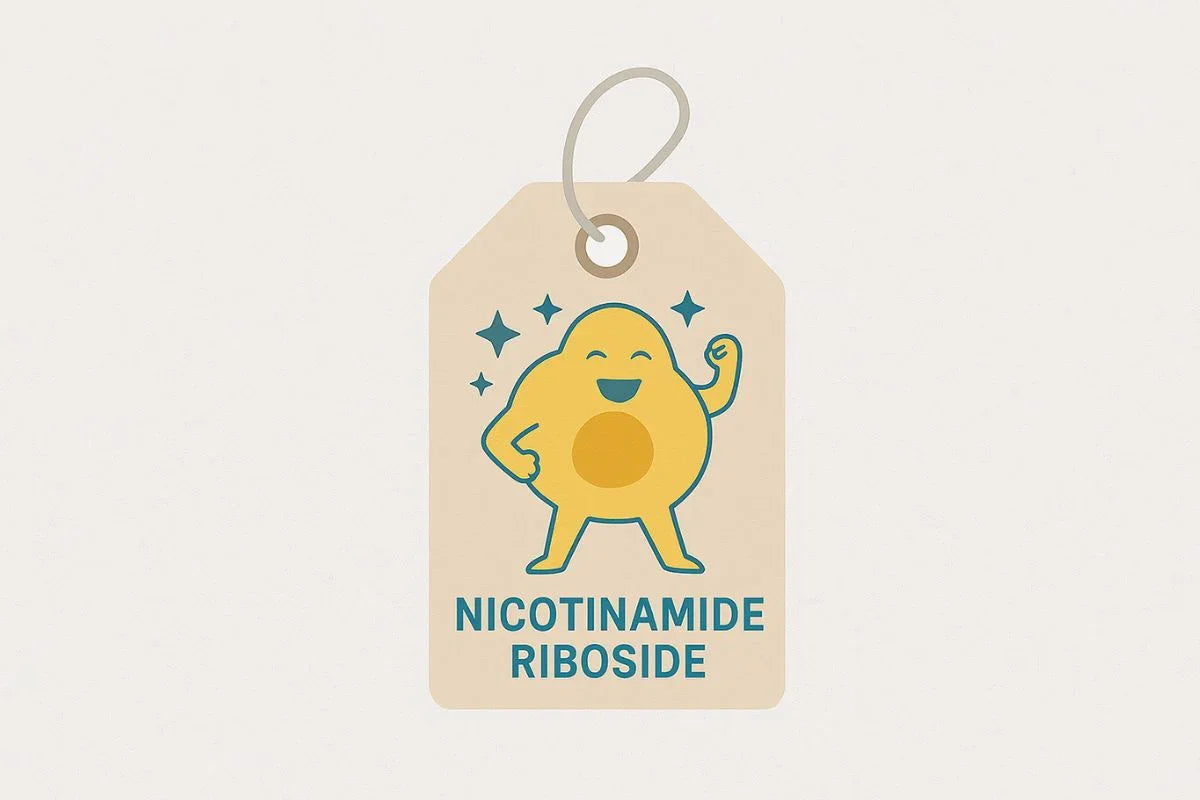
What are free radicals and antioxidants?
The Importance of Antioxidants: Protectors of Our Body
In the world of health and wellness, we often hear about antioxidants and their benefits. But what exactly are antioxidants, what types exist, and how can we best use them for our health? In this blog, we explore these questions in more detail and provide practical tips to optimize your antioxidant intake.
How Do Antioxidants Work?
Antioxidants play a crucial role in protecting our body from damage caused by free radicals. Free radicals are unstable molecules that arise during normal metabolic processes, but also from external factors such as sun exposure, smoking, and pollution. These molecules lack an electron and try to compensate by stealing electrons from other molecules, which can damage our cells and body systems. This process contributes to aging and various health problems.
Antioxidants neutralize free radicals by donating one of their own electrons, stabilizing them so they can no longer cause harm. Importantly, antioxidants themselves remain stable even after giving up an electron.
Types of Free Radicals and Their Causes
Free radicals can arise from both internal and external factors:
Internal Causes:
- Normal metabolism: Free radicals can be released during the conversion of food into energy in the mitochondria.
- Inflammatory responses: The immune system produces free radicals to fight pathogens.
External Causes:
- Exposure to UV radiation: Accelerates skin aging.
- Smoking: Tobacco smoke contains substances that increase free radical production.
- Air pollution: Pollutants can cause oxidative stress.
Influence of Stress on Free Radicals
Chronic stress can contribute to increased production of free radicals. Stress hormones such as cortisol trigger processes that increase oxidative stress. This can lead to cell damage and a higher risk of health problems.
Types of Antioxidants
Antioxidants can be divided into:
- Endogenous antioxidants: Enzymes such as glutathione peroxidase and superoxide dismutase.
- Exogenous antioxidants: These come from food, such as:
- Sulforaphane (broccoli, cruciferous vegetables)
- Curcumin (turmeric)
- EGCG (green tea)
- Resveratrol (grapes, berries)
- Quercetin (berries, apples, kale, red onions)
- Allicin (garlic, leeks, onions)
- Carnosic acid (rosemary, sage)
- Alpha-lipoic acid (meat, spinach, broccoli, tomatoes)
Potency and Effectiveness of Antioxidants
Not all antioxidants are equally strong. Some of the most powerful are:
- Astaxanthin: A carotenoid found in algae, salmon, and shrimp.
- Curcumin: The active component in turmeric.
- Alpha-lipoic acid: Soluble in both water and fat, it works in different parts of the body.
Important but less powerful antioxidants:
- Vitamin C: Water-soluble and works in the blood.
- Vitamin E: Fat-soluble and protects cell membranes.
- Flavonoids: Protect against oxidative stress, found in fruits and vegetables.
Food Sources of Antioxidants
To increase your antioxidant intake, eat the following foods:
- Berries: Blueberries, raspberries, and strawberries.
- Green leafy vegetables: Spinach and kale.
- Nuts and seeds: Almonds and sunflower seeds.
- Herbs and spices: Turmeric, oregano, and cinnamon.
- Dark chocolate: Rich in flavonoids.
Supplements as an Addition
Although a balanced diet is the best source of antioxidants, supplements can be a useful addition. Effective antioxidant supplements include:
- Vitamin C: Supports the immune system.
- Vitamin E: Protects cells from oxidative stress.
- Alpha-lipoic acid: Supports energy metabolism.
- Astaxanthin: Powerful protection, especially for the skin.
Lifestyle and Protection Against Free Radicals
Besides diet, lifestyle factors can help:
- Regular exercise: Stimulates natural antioxidant production.
- Stress management: Yoga and meditation reduce oxidative stress.
- Avoiding toxins: Limit exposure to pollution, cigarette smoke, and alcohol.
Conclusion
Free radicals are unavoidable, but a diet rich in antioxidants, a healthy lifestyle, and possibly supplements can help limit oxidative damage and protect your body from aging and disease.



